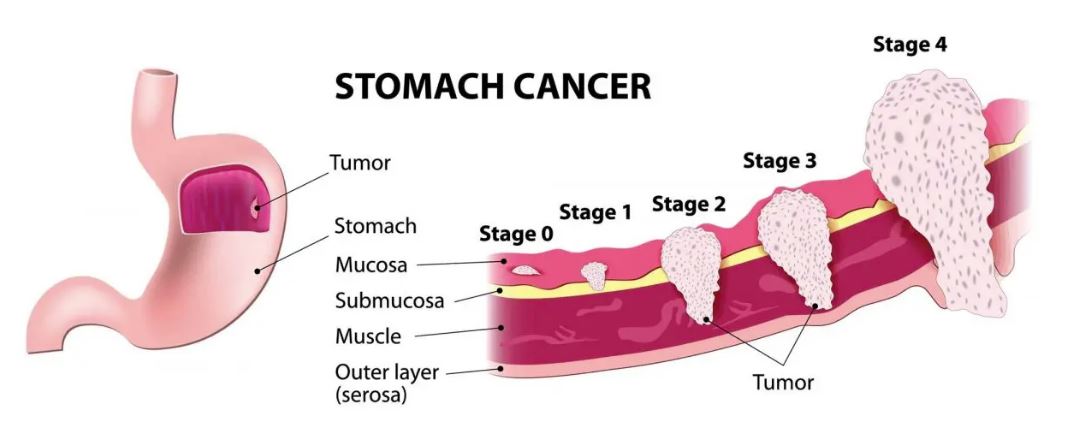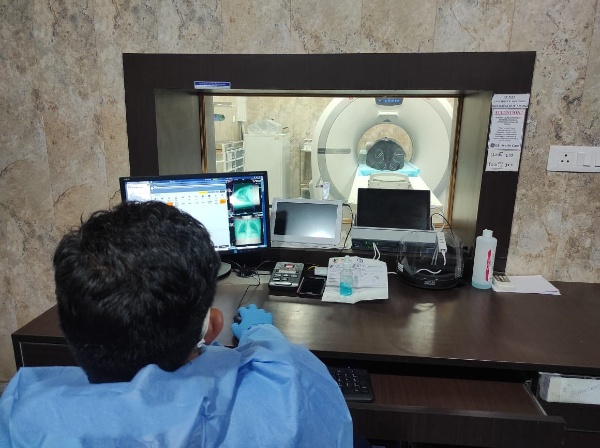Stomach cancer is an abnormal growth of cells that begins in the abdomen. The abdomen is a muscular sac located in the upper middle of your abdomen, just below your ribs. Your stomach receives and holds the food you eat and then helps break down and digest it.
Stomach cancer, also known as gastric cancer, can affect any part of the stomach. In most of the world, stomach cancers form in the main part of the stomach (the body of the stomach).
Gastric cancer is more likely to affect the area where the long tube (the esophagus) that carries the food you swallow meets the stomach. This area is called the gastroesophageal junction.
Where colon cancer occurs is a factor doctors consider when determining your treatment options. Treatment usually involves surgery to remove the stomach cancer. Other treatments may be recommended before and after surgery.
Symptoms
Signs and symptoms of stomach cancer may include:
- Vomiting
- Heartburn
- Nausea
- Stomach pain
- Feeling bloated after eating
- Difficulty swallowing
- Indigestion
- Unintentional weight loss
- Feeling full after eating small amounts of food
When to see a doctor
If you have signs and symptoms that concern you, contact your doctor. Your doctor will first examine the more common causes of these signs and symptoms.
Causes
It is not clear what causes colon cancer, although research has identified several factors that may increase the risk.
Doctors know that gastric cancer begins when a cell in the stomach makes changes to its DNA. A cell’s DNA contains instructions that tell the cell what to do. The changes tell the cell to grow rapidly and survive when healthy cells die. The accumulated cells form a tumor that can invade and destroy healthy tissue. Over time, the cells can break off and spread (metastasize) to other areas of the body.
Risk factors
Factors that increase the risk of stomach cancer include:
- Smoking
- Obesity
- Stomach polyps
- Gastroesophageal reflux disease
- Family history of stomach cancer
- Infection with Helicobacter pylori
- A diet low in fruits and vegetables
- Long-term stomach inflammation (gastritis)
- A diet high in salty and smoked foods
Prevention
To reduce the risk of stomach cancer, you can:
- Choose a diet full of fruits and vegetables. Try to include more and more fruits and vegetables in your diet every day.
- Stop smoking. If you smoke, quit. If you don’t smoke, don’t start. Smoking increases your risk of gastric cancer as well as many other types of cancer. Quitting smoking can be very difficult, so ask your doctor for help.
- Maintain a healthy weight. If you are overweight talk to your doctor, how to lose weight.
- Reduce the amount of smoked and salty foods. Eat limited these types of food. Make it a habit in your daily routine.
- Ask your doctor about your risk of stomach cancer. Talk to your doctor if you are at increased risk of colon cancer. People with a strong family history of gastric cancer may consider tests such as endoscopy to look for signs of colon cancer.




